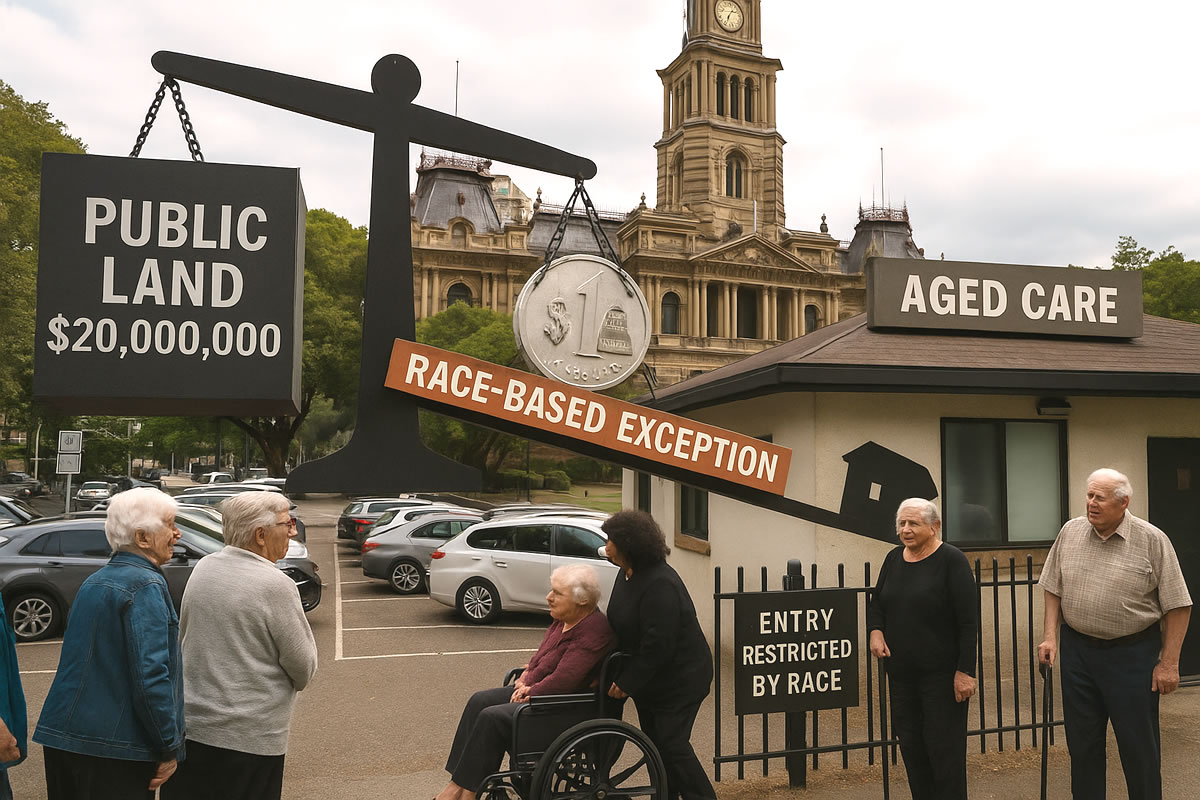In 2024, Australian students recorded their lowest-ever scores in civics and citizenship education. Only 28% of Year 10 students and 43% of Year 6 students met the proficiency standard, marking a significant decline from previous years. This downturn highlights a critical issue: a generation increasingly disengaged from the democratic processes that underpin our nation.
The Australian Curriculum aims to instil a deep understanding of the nation’s federal system and liberal democratic values. However, the recent assessment results suggest a disconnect between these educational goals and actual student outcomes. Experts warn that this gap leaves young Australians vulnerable to misinformation and foreign interference, undermining the very fabric of our democracy.
In response to these alarming trends, the Joint Standing Committee on Electoral Matters released a report titled “From Classroom to Community,” advocating for a comprehensive overhaul of civics education. Key recommendations include mandating a minimum of 10 hours of civics education annually for all students in Years 9 and 10, developing a compulsory civics course for Years 11 and 12, and enhancing teacher training to ensure educators are well-equipped to deliver this critical content.
South Australia has taken proactive steps by investing $18.4 million to revamp its civics curriculum. Initiatives include dedicating weekly civics lessons for Years 7 and 8, integrating civics education across all subjects in Years 9 and 10, and introducing specialised civics teachers in every public high school. These reforms aim to foster a more informed and engaged student body, capable of participating meaningfully in democratic processes.
Despite these efforts, challenges persist. A significant number of students lack basic political knowledge, with some unable to identify fundamental democratic principles or understand the separation of powers. Critics argue that the current curriculum’s emphasis on topics like diversity and environmental issues, while important, may come at the expense of foundational civic knowledge.
This shift away from core civics content is often driven by ideological agendas rather than pedagogical necessity. The growing prevalence of “social justice” education, with its focus on identity politics and perceived systemic oppression, can dilute essential knowledge about Australia’s democratic institutions. When students are taught to view the political system through a lens of grievance rather than understanding, we risk producing citizens who are cynical, misinformed, and disengaged.
To address these shortcomings, experts advocate for a balanced, knowledge-rich curriculum that prioritizes core democratic principles. This includes understanding the Constitution, the roles of various government branches, the rule of law, and the rights and responsibilities of citizens. Moreover, enhancing media literacy is crucial in an age where misinformation can spread rapidly, influencing public opinion and undermining democratic institutions.
A truly effective civics education must go beyond textbooks. Students need practical experiences: school debates, mock parliaments, voting simulations, and direct engagement with local, state, and federal representatives. These activities help demystify political processes and show young people that their voices matter. When students understand how democracy functions and how to influence it, they are more likely to participate actively and responsibly.
The private education sector also has a role to play. Independent and religious schools must resist the ideological trends prevalent in some public systems and recommit to teaching the timeless principles of liberal democracy. Parents, too, should be engaged as partners in this educational renewal. Civic understanding begins at home, and families must be encouraged to discuss current events, read newspapers, and model informed political engagement.
Some advocates suggest borrowing elements from other countries with successful civic education models. For instance, the United States, despite its own challenges, incorporates the study of founding documents such as the Constitution and Federalist Papers into secondary education. Similarly, Switzerland integrates civic duties into early education, reinforcing democratic participation as a cultural norm.
Ultimately, the decline in civics education is not merely an academic concern; it poses a tangible threat to the health of Australia’s democracy. An uninformed electorate is susceptible to manipulation, apathy, and disengagement, weakening the democratic process. Revitalising civics education is imperative to cultivate a citizenry that is informed, critical, and actively involved in shaping the nation’s future.
The recent push for Voice to Parliament, and the polarising debate surrounding it, underscores why civic literacy is so important. Many Australians struggled to understand the constitutional implications, the referendum process, and the long-term legal consequences. This confusion is not accidental but symptomatic of a society that has failed to adequately educate its youth about the very system they are meant to uphold.
There is also a moral imperative to provide all students with equal access to high-quality civics education. Currently, disparities exist between urban and rural schools, public and private institutions, and well-funded versus under-resourced areas. Without a national commitment to equitable civic instruction, we risk creating a two-tiered system where only some Australians understand their rights and responsibilities, while others remain perpetually disempowered.
Technology offers an opportunity to bridge these gaps. Online platforms can deliver engaging, interactive civics content to students across the country. Programs that incorporate gamification, video explainers, and virtual town halls can enhance student understanding and retention. However, these tools must supplement, not replace, robust in-person instruction by well-trained educators.
Public awareness campaigns can further reinforce civic education outside the classroom. National Civics Week, televised public forums, and school competitions can help re-establish the value of civic knowledge in the public imagination. Celebrating democratic milestones such as Australia Day and ANZAC Day with greater historical context can also foster a deeper sense of national identity and civic pride.
In conclusion, the current state of civics education in Australia demands urgent attention. By implementing comprehensive reforms, investing in teacher training, and emphasising foundational democratic knowledge, Australia can empower its youth to become active, informed participants in the democratic process. The future of the nation’s democracy depends on the civic literacy of its citizens; it is time to prioritise and revitalise civics education in our schools.






